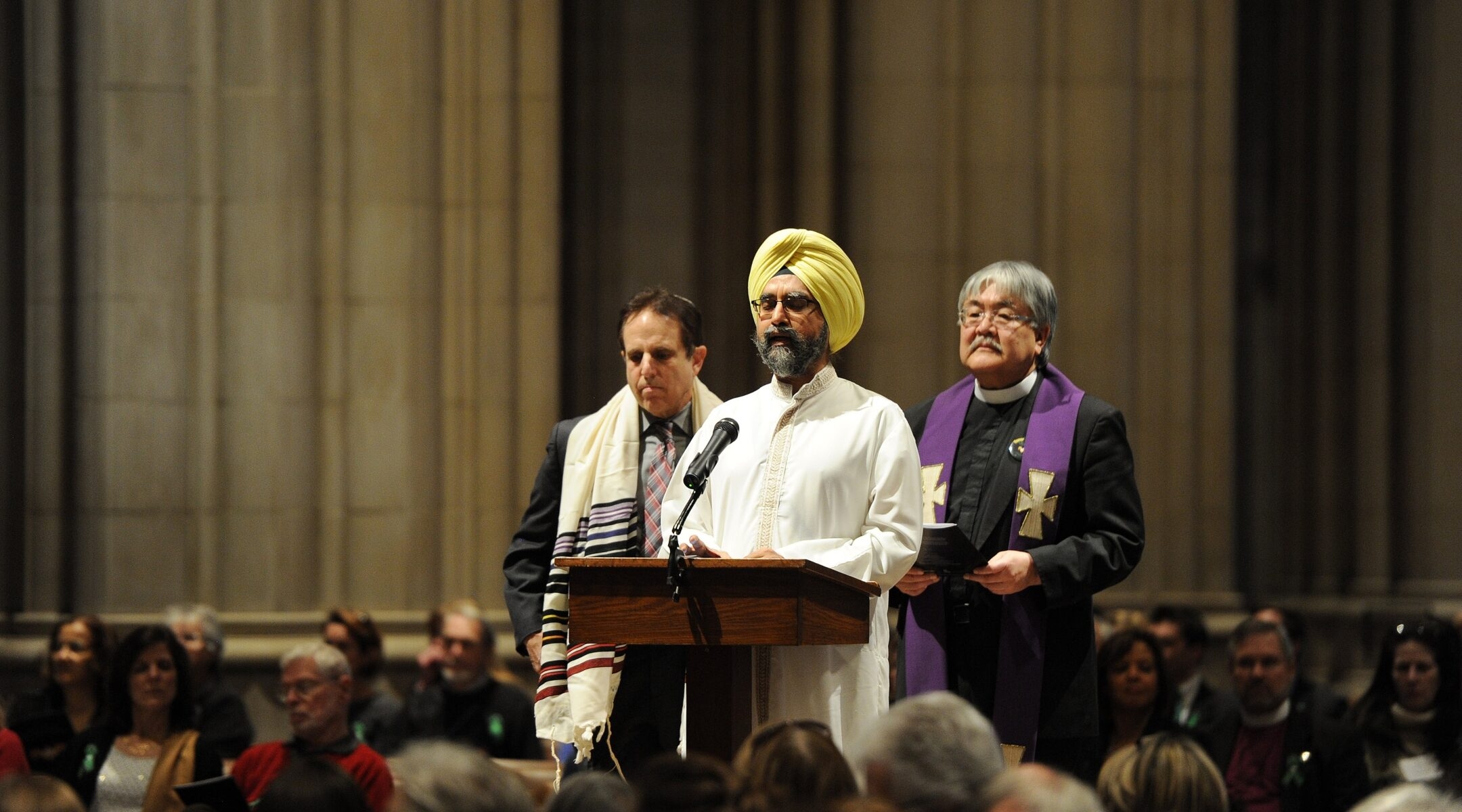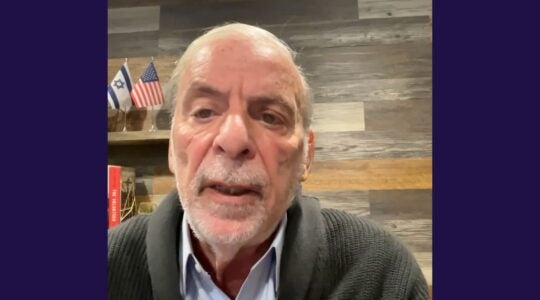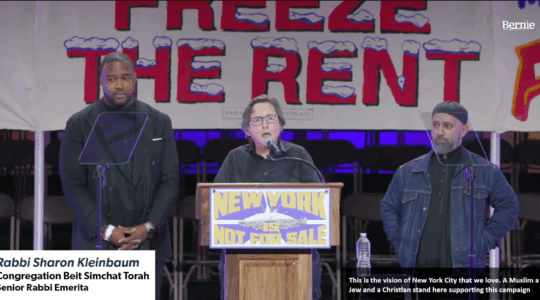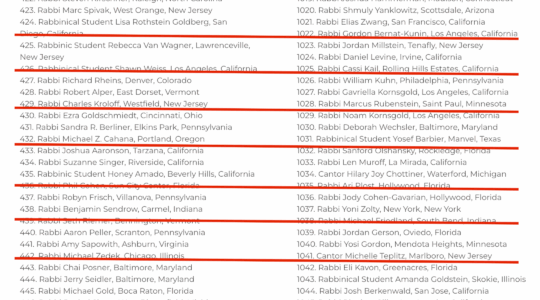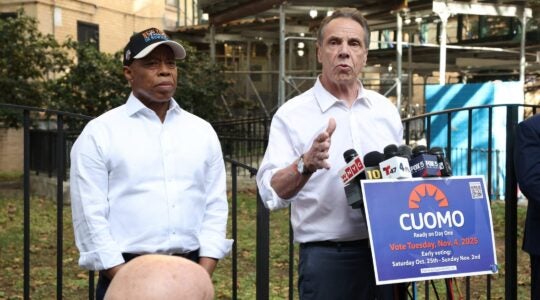WASHINGTON (JTA) — The Jewish Council for Public Affairs, the onetime standard-bearer for outreach to the non-Jewish world whose influence has waned, is loosening its financial and organizational ties to the Jewish Federations of North America in a bid to reassert its traditional role.
The decision to go it alone, announced Monday in a press release and a two-page brochure that will go out to Jewish organizations, will free the JCPA to pursue liberal agenda items that are favored by American Jews but can alienate or unsettle donors to the federation system who are more conservative or at least more cautious about maintaining an appearance of being nonpartisan.
The decision marks a resolution to tensions that surged in 2020 when JCPA was among 600 Jewish groups to sign onto a full-page New York Times ad declaring “Black Lives Matter.” That set off alarms among some conservative donors because of the anti-Israel positions adopted by some of the Black Lives Matter movement’s leading individuals and organizations.
As a result, JCPA and JFNA entered into talks about their shared future. Insiders said last year, as tensions burst into public view, that it was likely that the ailing JCPA would fold wholly into JFNA.
Instead, after a process that included officials from both groups as well as from local Jewish community relations councils, which are mostly controlled by their local Jewish federations, the decision was to tease apart the organizations. The decision means that JCPA will no longer officially speak on behalf of the community relations councils, and also will not draw dues from them or from the 16 national organizations that have funded it up to now.
But while the group will take on a fundraising challenge, those who engineered the new structure say it will also be insulated from the difficulties of arriving at a consensus in an increasingly polarized political environment.
Rabbi Doug Kahn, the retired longtime director of the San Francisco Jewish Community Relations Council who was a consultant in the restructuring, said the new arrangement is meant to offer a positive answer to the question, “Can we move forward in a way that enables us to be more impactful on our core issues, and more nimble at the same time, while retaining close relationships with our key stakeholders going forward?”
Maharat Rori Picker Neiss, who heads the St. Louis JCRC, was among a number of local community relations council directors who had lost hope that the JCPA could adequately represent them. Now she said, she was hopeful it could resume its role of convening a national Jewish consensus around critical issues.
“The model of consensus-building in the way that some of the mainstream organizations talk about it has really been consensus towards a very narrow group of voices that wants to claim representation of the entire Jewish community,” she said. The newly constituted JCPA “is opening itself up to what could be greater consensus in a sense of a much broader community than many of our models have allowed for.”
The brochure tied to the split indicates some of the issues on which the renewed JCPA will advocate. “JCPA will represent a strong independent voice within the American Jewish community on issues aimed at strengthening our democracy and commitment to an inclusive and just society out of the belief that such conditions are essential in a pluralistic society and for the well-being of the Jewish people and Israel,” it said. “The reset takes place against a backdrop of rising antisemitism, racism, bigotry and hate, and polarization, and continued threats to our democracy.”
The group is launching two new initiatives, both apparently likely to dismay conservatives. One would focus on “voting rights, election integrity, disinformation, extremism as a threat to democracy, and civics education.” The other would focus on “racial justice, criminal justice reform and gun violence, LGBTQ rights, immigration rights, reproductive rights, and fighting hate violence.”
Some of the 16 groups that have paid dues to the JCPA in the past are supporting the restructured group. The new JCPA will rely at first on a three-year commitment from the UJA Federation of New York, one of the biggest pillars of the JFNA.
It’s not clear yet how the more conservative among the 16 groups will react. Nathan Diament, the Washington director for the Orthodox Union, said his group would wait and see how the new JCPA develops. But he said he regretted the polarization that led to the change.
“The trajectory of that JCPA is a reflection of the of the broader trend, more than anything about the JCPA itself,” Diament said. “It’s harder to find consensus these days with regards to Israel, it’s harder to find consensus with regard to a large list of domestic policy matters. I mean, even while we were in the JCPA we were in the position of having to dissent on some prominent issues.”
David Bohm, the current JCPA chairman who led the restructuring talks, said the organization would remain nonpartisan — but acknowledged that it’s become harder to maintain the perception.
“In today’s polarized environment, people get accused of being partisan when they take a stand on any issue, so I don’t know if that can be totally avoided,” he said in an interview.
The JFNA in a statement welcomed the new configuration. “We look forward to continuing to work collaboratively with JCPA — as we always have — as it tackles issues of importance to Jewish communities in its new format.”
In an interview, Elana Broitman, JFNA’s senior vice president for public affairs, said the new configuration would allow the JCPA to delve deeper on its favored issues. “If the JCPA is focused on particular issues, they can perhaps go into more depth on those issues that they had the opportunity to before,” she said.
In the past, the JCPA has taken positions on issues like voting rights, gun control, immigration rights, and abortion, because they were favored by the local JCRCs with which it consulted and which sent delegates to its annual conference. Those JCRCs often initiated liberal policies, in part because they were favored by an American Jewish grassroots that polls show trends overwhelmingly liberal.
Another factor was the give and take in local community relations: Jewish groups seeking support for Jewish issues from Black, Latino, Asian American, and other minority groups were happy to reciprocate on those groups’ favored issues.
But the JCPA’s profile on those issues has diminished in recent years; the smaller donor base triggered by the 2008 recession forced the vast majority of JCRCs to fold into their local federations and to reflect the priorities of the federation donor base as opposed to the congregations, Jewish labor groups and fraternal organizations that once drove the agenda for Jewish community relations.
Tensions between the JCPA and the JFNA intensified in the summer of 2020, after a Minneapolis policeman murdered George Floyd, triggering civil rights protests and the “Black Lives Matter” ad by Jewish groups that JCPA signed onto.
The JFNA CEO, Eric Fingerhut, insiders said then, was not happy about having to explain to donors why JCPA was embracing a group identified closely with a movement perceived by some conservatives as radical and anti-Israel.
The new JCPA is betting that there are donors ready to support a progressive domestic Jewish lobby. In addition to the three-year grant from UJA-Federation, two other grants will come from a past chairwoman of the JCPA, Lois Frank, and its current chairman, Bohm.
Bohm, an attorney who assumed leadership of the JCPA in 2021, said the group would take a hit by losing the JFNA’s allocations and the dues it collects from the 125 community relations councils — but he expected to make it up with money from foundations invested in the JCPA’s new agenda, including from individual federations.
“We expect we may lose some funding,” he said. “We’re hoping it’s not significant.”
“We are beginning to hear from foundations that have not historically necessarily focused on community relations, but now recognize why that is such an important part in the toolkit,” Kahn added.
Bohm said the board would be independent and limited to 30 people. “We will continue to have board members who are either JCRC directors or current or past chairs of JCRCs, but they will not be representing their specific community,” he said in an email after the interview. “Instead they will represent the Jewish community relations field as a whole.”
JCPA’s annual budget is now less than $2 million, Kahn said, down from nearly $4 million in 2015, and its staff has dropped from 13 in the 2000s to four. The group is seeking a fifth staffer now and hopes eventually to employ at least 13.
Beyond polarization, a number of factors have been at play in diminishing the role of consensus-based Jewish community relations. There has been a flourishing of single-issue nonprofit groups, many of them Jewish, that are more attractive to donors than general interest groups.
Kahn noted that in the mid-1990s when many of the agenda items the national Jewish community pursued for decades seemed to be resolving themselves: Peace was breaking out between Israel and its neighbors, the Soviet Union collapsed and freed its Jews to travel, immigration reform was on track and race relations appeared to be improving.
“There was this shift from focusing on the external challenges or threats to more of the internal threats within the Jewish community,” he said, referring to an emphasis on Jewish education to counter assimilation.
The fragility of the hopes for peace and democratic growth in the 1990s was made evident in subsequent years with the Sept. 11, 2001, terrorist attacks, the eruption of the Second Intifada, and the rise of nativist sentiment and its attendant bigotries, culminating in the Trump presidency.
Kahn said his hope was that the JCPA would once again assume the role it played from 1944, when it was founded as the National Jewish Community Relations Advisory Council: raising Holocaust awareness and taking the lead in promoting immigration in the late 1940s, establishing the Black-Jewish alliance in the 1950s, defending Israel in the 1960s, and advocating for Soviet Jewry until the USSR’s collapse.
He saw hope in the turnout of non-Jewish support for Jews after the recent deadly attacks on Jewish institutions, including the gunman who massacred 11 worshipers in Pittsburgh in 2018. “I think this model will enable that kind of solidarity-building around issues of common cause to grow infinitely greater than it’s been able to, up until now,” he said.
JTA has documented Jewish history in real-time for over a century. Keep our journalism strong by joining us in supporting independent, award-winning reporting.
